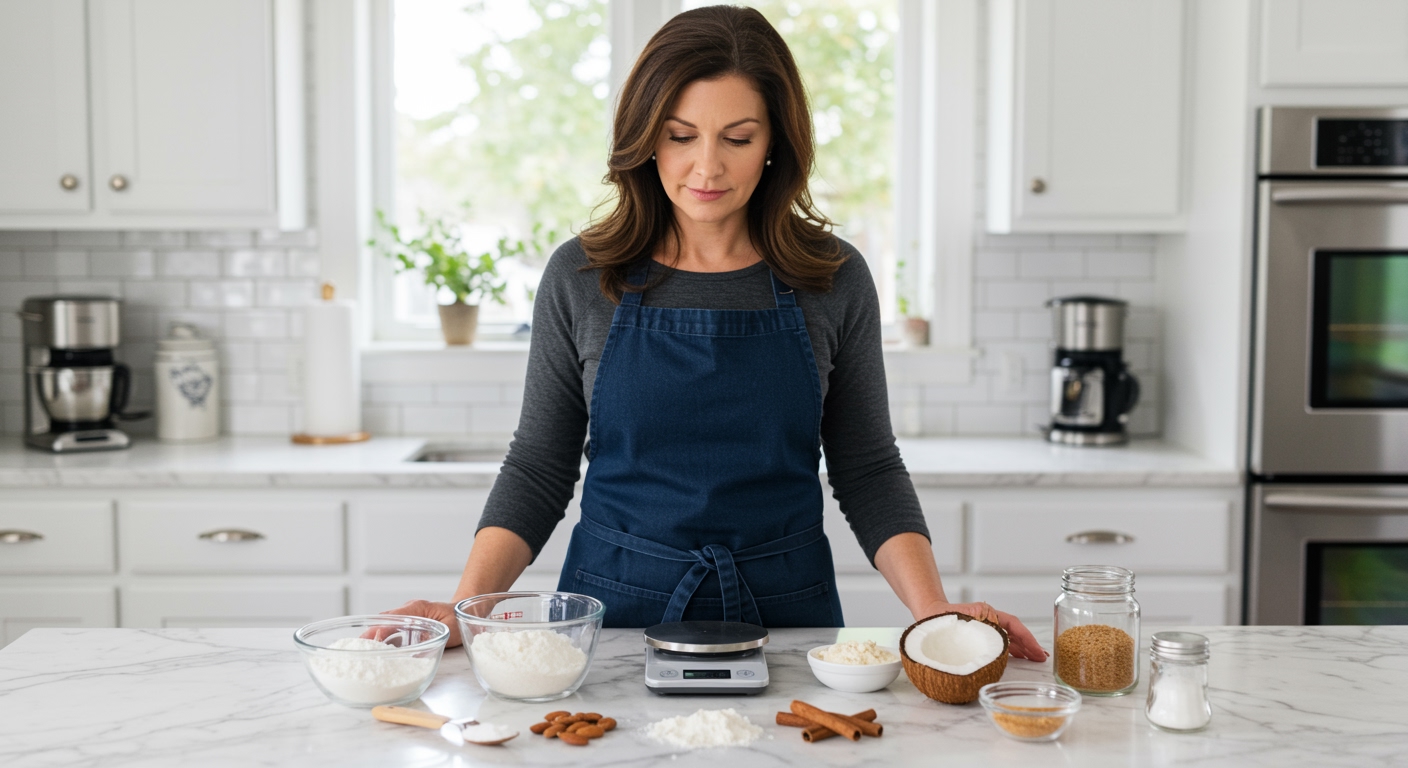✪ Key Takeaway: PCOS women can eat corn without major insulin spikes by choosing fresh varieties, controlling portions, and timing consumption properly.
Introduction
You stare at that golden corn on the cob wondering if one bite will send your insulin levels through the roof.
This fear makes perfect sense because PCOS women deal with insulin resistance that makes blood sugar management feel like walking through a minefield.
Hi, I am Abdur, your nutrition coach and today I am going to explain exactly how corn affects your insulin levels and share proven strategies to enjoy it safely with PCOS.
Does Corn Really Spike Insulin That Much?
Fresh corn has a moderate glycemic index of 52 to 69, which puts it in the middle range rather than the danger zone.
This means corn raises blood sugar more slowly than white bread or instant rice, but faster than leafy greens or nuts.
The fiber content in fresh corn helps slow down sugar absorption, giving your body more time to process the carbohydrates.
One medium ear of corn contains about 19 grams of carbs and 2 grams of fiber, creating a more balanced blood sugar response.
Your insulin response depends heavily on the type of corn you choose and how much you eat at once.
Fresh corn kernels cause less dramatic spikes than processed corn products like corn flakes or high fructose corn syrup.
The preparation method also matters because boiled corn has a lower glycemic impact than corn that has been dried and ground into flour.
✪ Fact: Sweet corn varieties have higher sugar content than field corn, making portion control even more important for PCOS women.
Why Do PCOS Women Struggle More With Corn?
PCOS creates insulin resistance that makes your cells less responsive to insulin signals, requiring more insulin to process the same amount of carbs.
This means foods that barely affect healthy women can cause significant blood sugar swings in women with PCOS.
Your body produces excess insulin to compensate for this resistance, leading to higher baseline insulin levels throughout the day.
When you add corn to this already elevated insulin environment, the spike becomes more pronounced and lasts longer.
The hormonal imbalance in PCOS also affects how your liver processes and stores glucose from foods like corn.
Higher testosterone levels common in PCOS can worsen insulin sensitivity, making carbohydrate management more challenging.
Many PCOS women also have slower metabolism rates, meaning corn calories get stored as fat more easily than burned for energy.
✪ Note: Up to 70% of PCOS women have insulin resistance, making careful carbohydrate timing and portioning essential for symptom management.
What Makes Some Corn Worse Than Others?
Processed corn products like corn chips, corn flakes, and corn syrup cause much more dramatic insulin spikes than fresh corn.
The processing removes fiber and concentrates sugars, creating a rapid glucose dump into your bloodstream.
Sweet corn varieties contain higher natural sugar levels compared to field corn or popcorn kernels.
Canned corn often includes added sugars and preservatives that can worsen the glycemic response.
The ripeness level affects sugar content, with fully ripe sweet corn containing more simple sugars than younger ears.
Cooking methods matter too because longer cooking times break down fiber and make sugars more readily available.
Portion size becomes critical since even healthy corn can overwhelm your insulin response when eaten in large quantities.
✪ Pro Tip: Choose baby corn or smaller portions of fresh corn over sweet corn varieties to minimize blood sugar impact while still enjoying the taste.
How Can You Eat Corn Safely With PCOS?
Start with small portions of about half a medium ear or one-third cup of kernels to test your individual response.
Pair corn with protein and healthy fats to slow down sugar absorption and create a more stable blood glucose curve.
Timing matters significantly, so eat corn earlier in the day when your insulin sensitivity tends to be higher.
Avoid eating corn on an empty stomach or as a standalone snack since this maximizes the insulin spike.
Choose fresh or frozen corn over canned varieties to avoid added sugars and preservatives that worsen glycemic response.
Monitor your blood sugar before and after eating corn to understand your personal tolerance level.
Consider exercise timing by planning light physical activity within 30 minutes after eating corn to help muscles use up the glucose.
✪ Pro Tip: Add a tablespoon of olive oil or a handful of nuts when eating corn to significantly reduce the insulin response through fat-mediated glucose absorption.
When Should You Avoid Corn Completely?
Skip corn entirely if you are in the acute phase of getting your PCOS symptoms under control and need strict blood sugar management.
Avoid corn when your fasting blood glucose consistently runs above 100 mg/dL or your HbA1c exceeds 5.7%.
Women with severe insulin resistance who experience dramatic energy crashes after eating moderate amounts of carbs should eliminate corn temporarily.
If you are actively trying to lose weight for PCOS management, corn calories might be better replaced with lower-carb vegetables.
Avoid corn during hormonal fluctuations like your menstrual cycle when insulin sensitivity naturally decreases.
Skip corn if you notice it triggers cravings for other high-carb foods or leads to overeating episodes.
Consider elimination if corn consistently causes digestive issues or inflammation that could worsen PCOS symptoms.
✪ Note: Some PCOS women develop food sensitivities that make corn problematic beyond just blood sugar concerns, requiring complete avoidance.
The Bottom Line
PCOS women can include corn in their diet without major insulin disasters by choosing fresh varieties, controlling portions, and timing consumption strategically.
Your body is not broken, it just needs smarter fuel timing and combinations to work optimally.
Share your experiences with corn and PCOS in the comments below because your insights help other women navigate these same challenges with confidence.
References
At NutritionCrown, we use quality and credible sources to ensure our content is accurate and trustworthy. Below are the sources referenced in creating this article:
- MyOvaCare: PCOS and Insulin Resistance
- Signos: Corn Glycemic Index
- PCOS Nutrition: Women PCOS Need Eat Carbohydrates
- PMC: PCOS and Metabolic Syndrome
- Healthline: PCOS Diet





